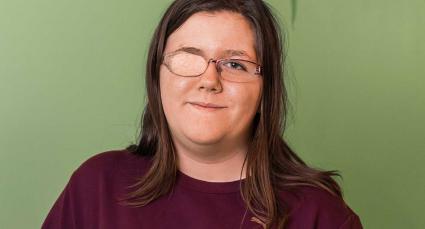At the very start of December 2017, Anabelle was brought into the world and was seemingly a healthy baby. While Anabelle always came across as a mellow baby, as first-time parents, both Stéphanie and Andre thought it was normal and everything was fine.
“We noticed she was getting lethargic, and it was becoming worse and worse as she was always wanting to sleep,” says Stéphanie. Anabelle’s family also noticed she seemed to be very pale.
By August, Anabelle’s condition had continued to deteriorate, and Stéphanie and Andre brought her to their local emergency room in Moncton. Anabelle underwent blood tests, and the team discovered her hemoglobin was quite low for a baby her age. They were admitted for the night and the next morning, they headed to the IWK to meet up with Dr. Conrad Fernandez and the genetics team.
According to Stéphanie, “This is the moment we realized our little girl was really sick.”
Once Anabelle was admitted at the IWK, they started many tests including inserting a PICC line, and retrieving a sample of her bone marrow. Anabelle also received seven blood transfusions to try and help get her levels and counts back to normal.
Anabelle was diagnosed with sideroblastic anemia, a rare blood disorder in which the body has enough iron but is unable to use it to make hemoglobin. Sideroblastic anemia can be inherited, acquired, or of unknown etiology.
Based on Anabelle’s symptoms, her bone marrow biopsy results, and the geographic region from where her parents originated, the IWK arranged genetic testing for the Acadian pathogenic variant. These results came back indicating that Anabelle is homozygous for this variant (meaning that she has 2 copies of this variant). This confirmed her diagnosis of Sideroblastic Anemia.
While Stéphanie and Andre received genetic counseling, they learned that they carry an altered copy of the gene and have no features of the condition.
Today, Anabelle is a fun and upbeat four-year-old that enjoys camping, going to the pool, going to the beach, playing with her friend’s and playing with her dolls.
Along with taking daily iron medication, she will continue to receive a blood transfusion every three weeks for the rest of her life. Anabelle is followed closely by the IWK, visiting every three months for checkups and for her annual MRI.



